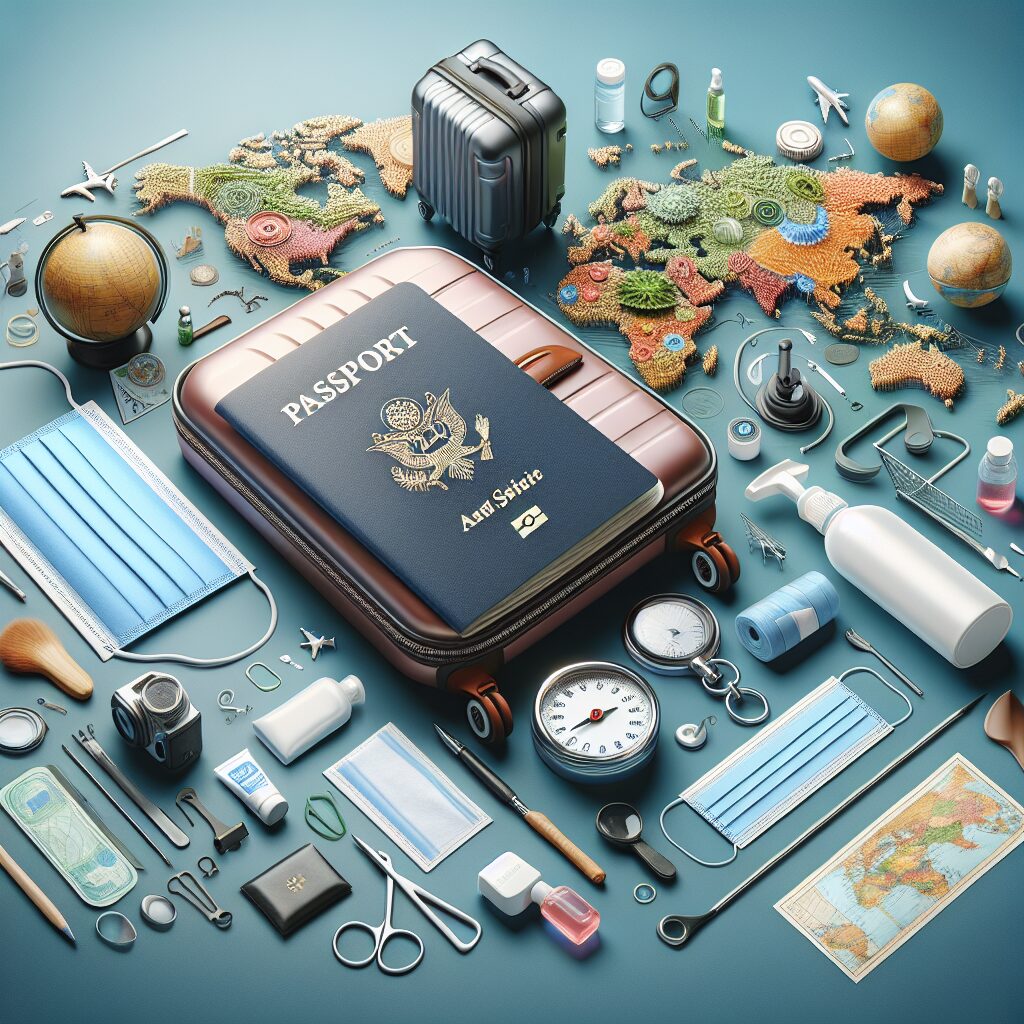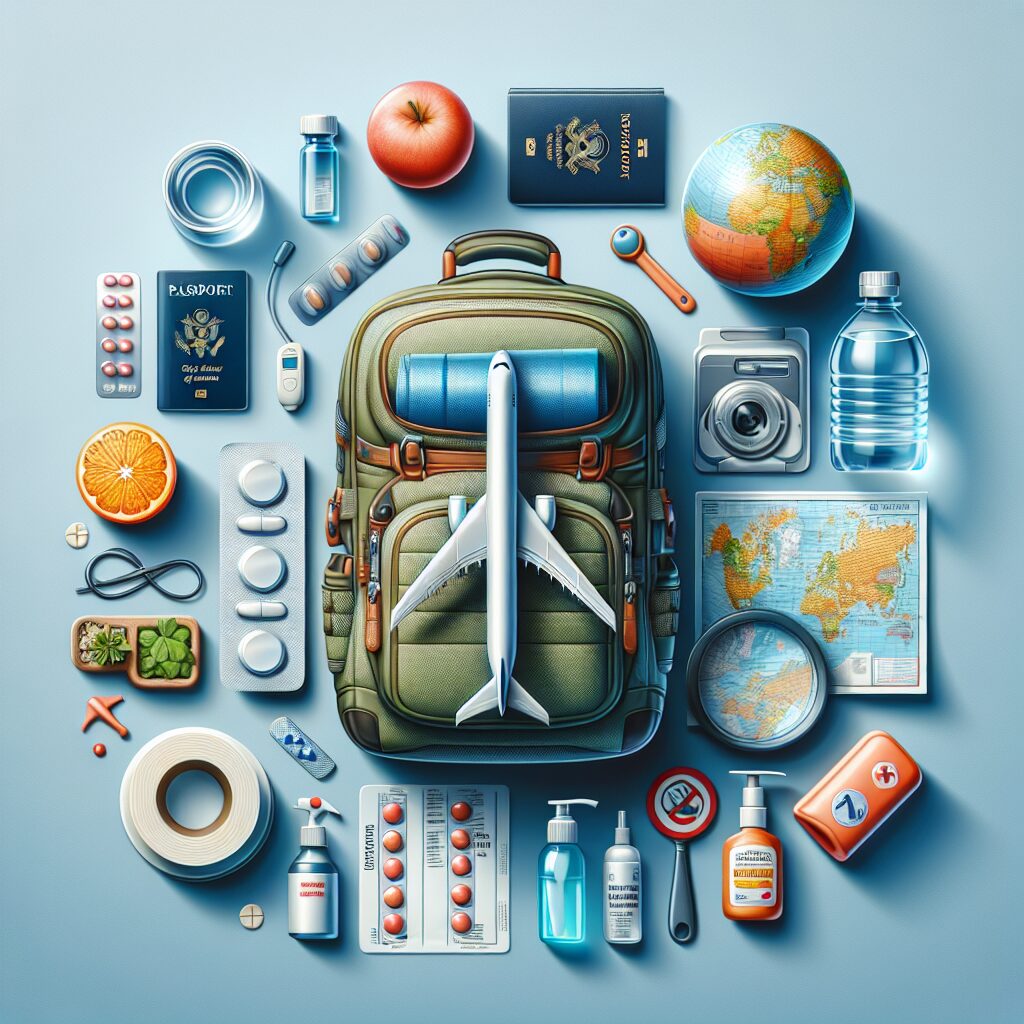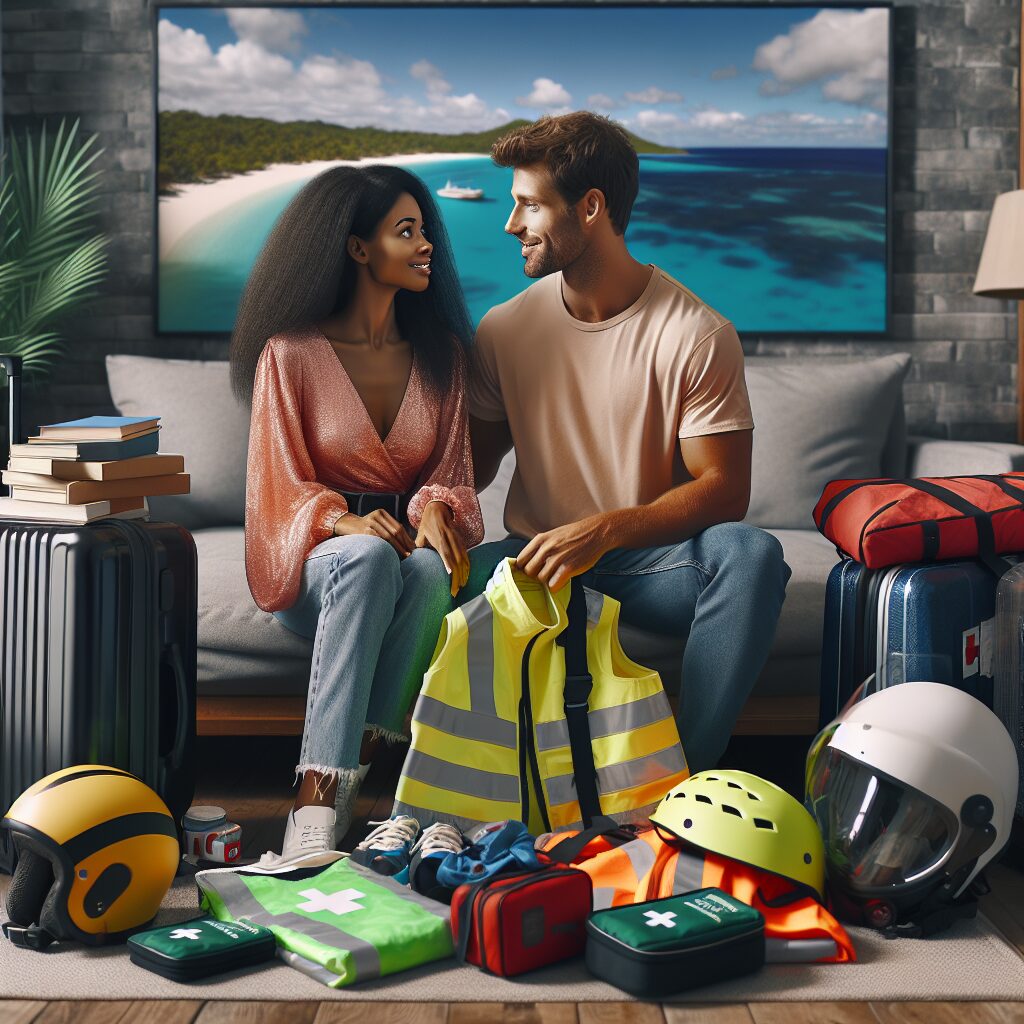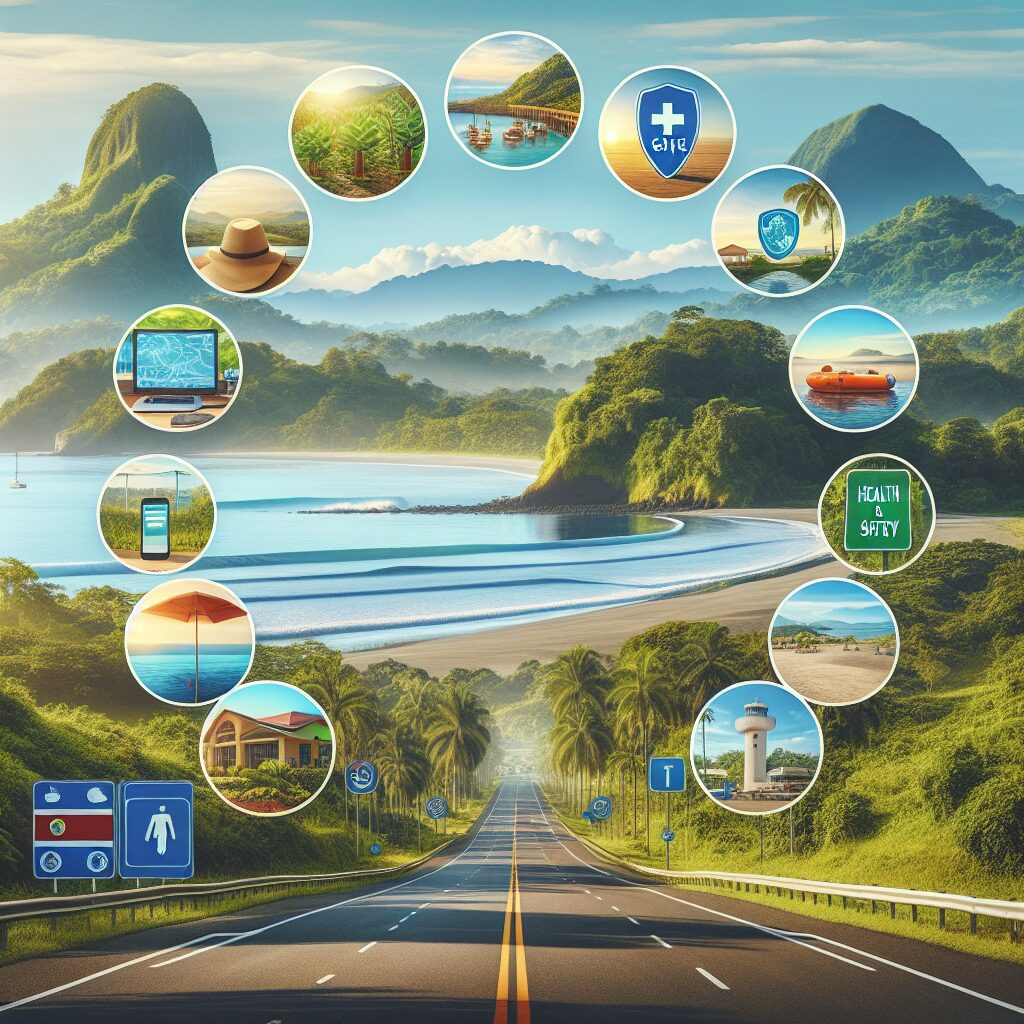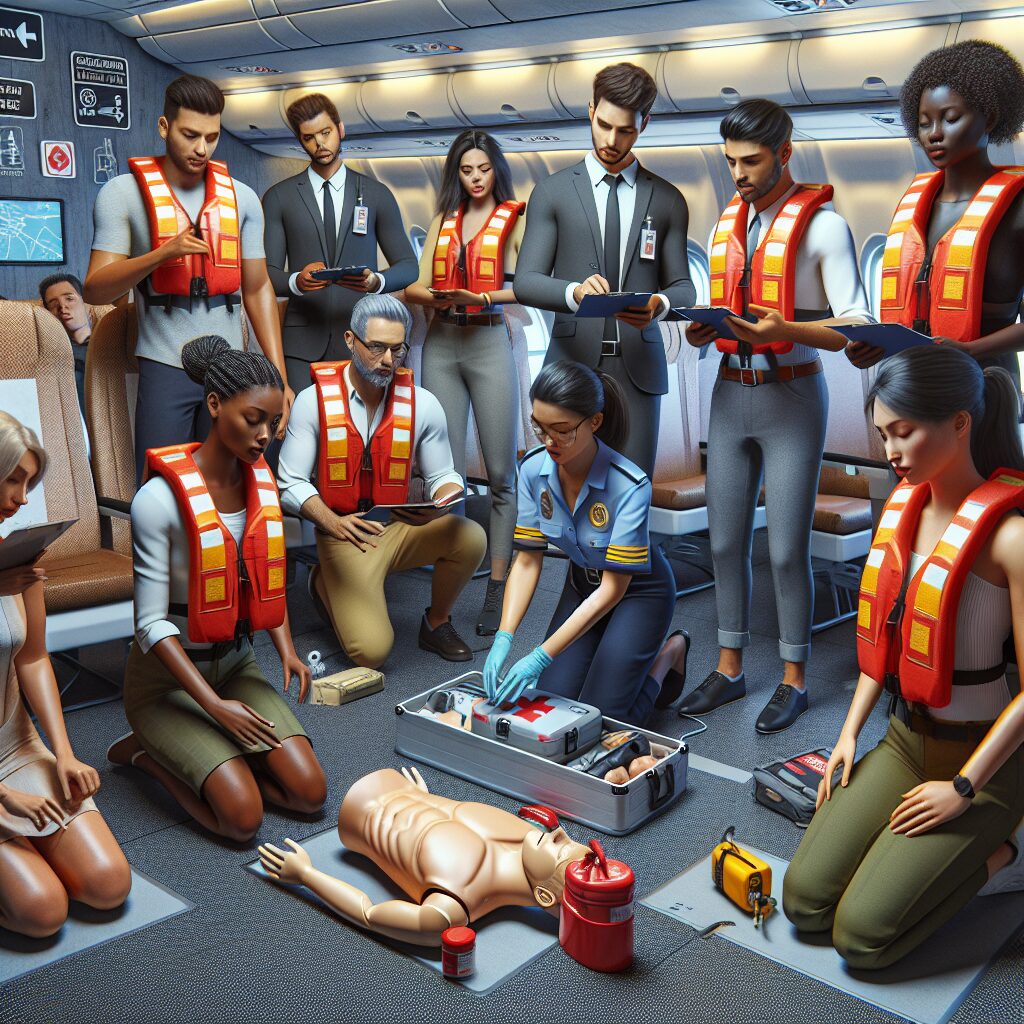Staying Safe During International Travel is a crucial aspect to consider for any globetrotter. One of the unique insights related to this topic is the fact that each country has its own set of safety risks and precautions to be taken. While some places may have a low crime rate, other destinations may have higher risks of theft or scams. It is essential to do thorough research on the safety guidelines and precautions specific to the country you plan to visit.
When it comes to international travel, there are several impacts and unique features that need to be taken into account. Language barriers can often pose a challenge, making it difficult to communicate in case of emergencies or seek help. Moreover, unfamiliarity with local customs, traditions, and laws can inadvertently lead to unintentional offenses or misunderstandings. It is vital to be aware of cultural differences and ensure one’s actions align with local norms to avoid any unnecessary trouble.
In the upcoming discussion, we will delve into key takeaways to help you stay safe during international travel. These takeaways will cover various aspects, including pre-trip preparations, personal safety measures during your journey, and valuable tips for staying vigilant while exploring new destinations. By following these guidelines, you can ensure a secure and worry-free travel experience.
Key Takeaways
1. Research and understand the local laws, customs, and cultural norms of your destination before traveling internationally. This will help you avoid inadvertently breaking any rules and ensure that you show respect to the local population.
2. Prioritize your personal safety by staying alert and aware of your surroundings at all times. Avoid walking alone at night in unfamiliar areas and utilize transportation methods recommended by reliable sources. Additionally, be cautious of your belongings and keep them secure to minimize the risk of theft.
3. Take appropriate measures to safeguard your health while traveling. This includes getting necessary vaccinations before departure, practicing good hygiene, and being cautious about food and water consumption. It is also advisable to carry essential medications and have travel insurance that covers medical emergencies.
4. Stay connected and informed by registering your trip with your country’s embassy or consulate, keeping emergency contact numbers at hand, and staying updated on local news and travel advisories. Be aware of potential risks, such as political unrest or natural disasters, and have a contingency plan in place.
5. Secure your travel documents and financial assets. Make copies of important documents like your passport, visa, and travel itinerary, and store them separately from the originals. Use secure internet connections for online transactions and consider carrying a combination of cash, credit cards, and traveler’s checks to ensure access to funds in case of emergencies.
How can you stay safe during international travel?
Research your destination thoroughly
Before embarking on an international trip, it is crucial to conduct thorough research about your destination. Understand the local customs, laws, and regulations to avoid any cultural faux pas or legal issues. Additionally, make sure to gather information about the current political and social climate of the country you plan to visit. Stay updated on travel advisories and warnings issued by your government or international organizations.
Protect your personal belongings
Keeping your personal belongings safe is of utmost importance when traveling internationally. Invest in a reliable anti-theft backpack or bag that comes with secure locks and hidden compartments. Avoid carrying excessive cash and use travel-friendly payment methods like credit cards or digital wallets. Make copies of all important documents such as your passport, visa, and travel insurance, and keep them in a separate place from the originals.
Secure your accommodation
Choosing a safe and secure accommodation plays a vital role in ensuring your overall safety during international travel. Look for accommodations with good security measures, such as 24/7 front desk service, CCTV surveillance, and secure access to rooms. Reading reviews and checking the location’s safety rating can give you valuable insights before making a reservation.
Stay vigilant and aware
Being aware of your surroundings is crucial to staying safe while traveling abroad. Pay attention to any suspicious activities or individuals around you. Keep an eye on your belongings at all times, especially in crowded places and tourist attractions where pickpocketing is common. Avoid sharing sensitive information with strangers, and be cautious when using public Wi-Fi networks to protect yourself from cyber threats.
Blend in with the locals
Try to blend in with the local culture to avoid drawing unnecessary attention to yourself. Dress modestly and respect local customs and traditions. Avoid displaying expensive jewelry or belongings that might make you an attractive target for theft. Learning a few basic phrases in the local language can also help you navigate better and communicate effectively, especially in emergency situations.
Stay updated on health and safety advisories
Prioritize your health and well-being while traveling internationally. Check the latest health advisories and make sure you have the necessary vaccinations or medications recommended for your destination. Pack a basic first aid kit with essential supplies for minor injuries or illnesses. Familiarize yourself with emergency contact numbers and nearby medical facilities at your travel destination.
Make a safety plan
Before setting off on your international adventure, create a comprehensive safety plan. Share your itinerary with a trusted friend or family member and regularly update them during your trip. Research and locate the nearest embassy or consulate in case of any emergencies. Stay connected by having a reliable means of communication, such as an international SIM card or knowing the availability of Wi-Fi hotspots in your destination.
- Always carry a photocopy of your passport and keep the original document secured in a hotel safe.
- Be cautious when using public transportation, especially during late hours or in unfamiliar areas.
- Keep emergency numbers, including local police and medical services, saved on your phone.
- Stay informed about local scams or common tourist traps in your destination.
- Trust your instincts and avoid risky situations or places that make you feel uncomfortable.
FAQs – Staying Safe During International Travel
1. Is it safe to travel internationally?
While there are always risks involved with traveling, if you take necessary precautions, it is generally safe to travel internationally. Research your destination, stay updated on current events, and follow safety guidelines provided by travel advisories.
2. Do I need travel insurance?
It is highly recommended to have travel insurance when traveling internationally. It provides coverage for unforeseen events such as medical emergencies, trip cancellations, and lost belongings, offering you peace of mind during your trip.
3. How can I protect my personal belongings while abroad?
To protect your personal belongings, always keep them in sight or locked up securely. Use luggage locks, keep valuable items in a safe at your accommodation, and avoid carrying excessive amounts of cash. Additionally, consider using a money belt or a secure bag to minimize the risk of theft.
4. Should I be concerned about my personal safety?
While it is important to be aware of your surroundings and take precautions, there is no need to be overly concerned about personal safety. Use common sense, stay vigilant, and avoid unsafe areas. Researching and adhering to local customs and laws will also help ensure a safer experience.
5. What measures should I take to stay healthy during my trip?
To stay healthy while traveling, make sure to get all necessary vaccinations before your trip. Follow good hygiene practices, drink bottled water, and avoid consuming raw or undercooked foods. Additionally, consider purchasing travel medical insurance to cover any unexpected medical expenses.
6. How can I stay connected with family and friends while abroad?
To stay connected, consider purchasing a local SIM card or an international data plan for your phone. Utilize apps like WhatsApp or Skype for free or low-cost calls and messages. Inform your loved ones about your travel plans and regularly check in with them.
7. Should I be concerned about online security during international travel?
Online security is crucial during international travel. Use secure networks whenever possible, avoid accessing sensitive accounts on public Wi-Fi, and be cautious when using public computers. Consider using a virtual private network (VPN) to protect your online data and identity.
8. What should I do in case of an emergency?
In case of an emergency, familiarize yourself with the local emergency numbers and protocols. Register with your country’s embassy or consulate in the destination country and keep their contact information accessible. Follow instructions from local authorities and stay calm.
9. How can I minimize the risk of pickpocketing?
To minimize the risk of pickpocketing, always be aware of your surroundings and avoid displaying valuable items openly. Use a money belt or secure bag to keep your belongings close to your body, avoid crowded areas, and be cautious of distractions created by others.
10. What documents should I carry with me while traveling internationally?
Always carry a valid passport, necessary visas, travel insurance information, and a copy of your itinerary. Keep scanned copies of important documents, like your passport and driver’s license, in a secure digital format. It’s also advisable to have multiple backups of these documents.
Final Thoughts – Staying Safe During International Travel
Traveling internationally can be a rewarding and enriching experience, but it’s important to prioritize your safety. By taking a few precautions, such as researching your destination, staying informed, and following safety guidelines, you can ensure a safe and enjoyable trip.
Remember, staying safe during international travel involves a combination of common sense, preparedness, and awareness. Always trust your instincts, be respectful of local customs and laws, and maintain open communication with your loved ones. By following these guidelines, you can make the most of your international adventures while keeping yourself protected.


